‘There are plenty of us cave-dwellers living right in the throbbing heart of our cities’
Seven years ago, after 25 years of marriage, my wife and I separated. So began the quest to find meaning and purpose in solitude.
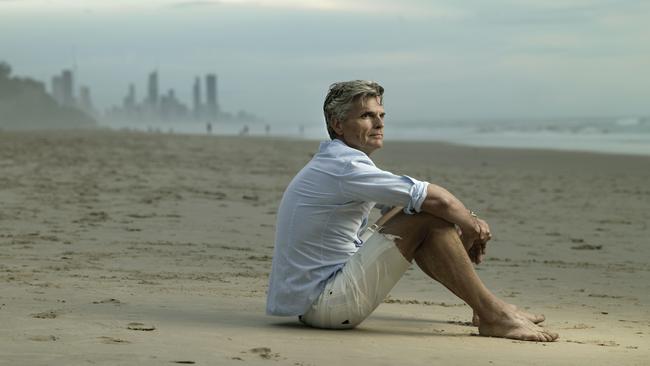
I’d like to acknowledge two articles that “inspired” – a hoary old word, I know – what I’m about to say. They appeared in The New Yorker magazine, the first, entitled The History of Loneliness, in the March 30 edition of 2020, and the second, The Problem of Marital Loneliness, on September 25 this year.
They probably would not have been written but for the global confinement, which seems to have opened something of a Pandora’s box on the modern, pre-existing phenomenon of living alone. Or being alone. Or just feeling alone – even within a marriage or partnership. It all leads, of course, to a larger question. Are any of these types of alone tantamount to loneliness? Is it the same thing?
It is Sunday afternoon as I write this. My clothes dryer roars. I’m not worried. I’ve always been able to block out external noise. Perhaps a by-product of spending so much time in my head.
It’s a typical Sunday really, apart from the fact that I rose about 7am (late for me) after my usual fitful sleep. Normally, I’d spend at least an hour on my novel (a slow work in progress) together with a cup of tea and a protein bar before heading out on a run. Because of the hour, I skipped the writing part and left home after a digestive pause of 30 minutes or so.
I live in a fourth-floor apartment of a recently established block on the fringe of inner-city Brisbane. I run by the nearby river every second day, maybe twice as long on Sundays. I’ve run for leisure practically all my life, but rarely taken stock of distances. I guess the Sunday one consumes the best part of 90 minutes.
I finish and warm down at the same spot where I do my preliminary stretches, on the edge of a trendy shopping village, where I pick up a large black coffee and walk one block back home. Once inside, I scoff a protein shake and prepare the same breakfast I have eaten every morning for at least six months: oats, dried dates and apricots, almonds, pumpkin kernels, berries and sliced banana. I add a smidgen of milk, usually lactose-free, but there was only a drop left this morning so I topped up with the standard full cream I use for my tea. I spent a minute folding the mixture with my spoon.
I checked my phone: the usual updates and notifications from subscription media. It was 10.30am. No calls or messages. Five hours later – that is, right now – no change. I feel a little sad in my chest as I say that. Funny, this is the life I choose. I’m convinced it’s the right choice, but its general form has preponderated every day of the past seven years. And sometimes, just sometimes, I wonder…
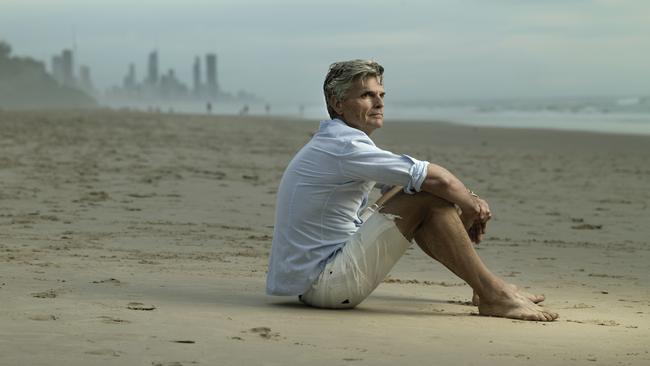
Seven years ago, after 25 years of marriage, my wife and I separated. Three years later, we were divorced. It was all done over the internet and cost, if memory serves me, about $800.
I have been asked, “Was it amicable?” The question would always have a stupefying effect.
“Um, it wasn’t not amicable.”
“What happened?”
“I don’t know.”
“Do you still get along?”
“We don’t talk.”
“Not at all?”
“No.”
With the wisdom of hindsight, I guess we broke up for one reason or another. How’s that for clarity?
I moved out of the hinterland home we had built, where we raised three great kids, who thank God were young adults and out on their own when all this went down. Not that there wasn’t shock, pain and, I’m sure, ongoing emotional repercussions on their part that only they could tell you about.
Suddenly, after all that human capital expended creating one’s piece of paradise – yes, the monetary investment including the lump of paperwork that went with a couple of mortgage switches in pursuit of a better deal, and the additional refinancing to tack on extensions and then a recreational cabana, but also the weeks spent laddering the walls or bent over a hot tin roof re-staining the cedar cladding, the relentless mowing that goes with living on acreage, the love of pets and the wrench of their road-spattered demise, the fraternity of good neighbours – I was returned to the bright lights and noisy clutter of suburban Brisbane, where I had grown up. Only now I was alone, inside a rented two-bedroom apartment, which to secure involved another paper tower, this one coldly interrogative, rule-laden, transactional and building to nothing, outside a year’s existence (if I toed the line) and then we’ll see about another.
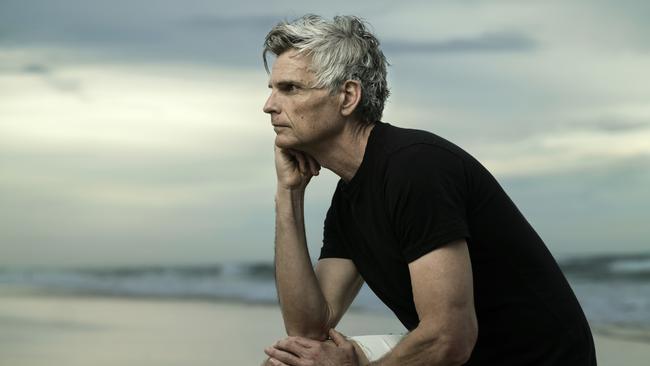
At first, I embraced the concept of “freedom”. But it didn’t return much in the way of concrete results. The Friday night high note was three parts takeaway pizza, red wine and Spotify – and four walls. I tried going out, but I think I’d forgotten how. The last time I seriously hit pubs and clubs was as a haphazard 20-something alongside mates with whom I had long since lost touch.
So I did some strange things. One Saturday afternoon I caught a bus into the city centre to watch a chamber music concert I’d seen a notice for, within the yellowed sandstone walls of Old Government House. I stood at the back of an intimate room of strangers, where dispatches of cello, violin and flute whorled uncomprehendingly. I clapped in all the right places, even joined a boisterous “Bravo!” at the end, and took my leave, trailing down through the Botanic Gardens to the primeval crunch-crunch of rotting vegetation underfoot, a register that at least I recognised.
A year passed.
Then the opportunity arose to move into the sea-change apartment my wife and I had purchased with an unseeing eye to the future. It was perched high at Moffat headland, behind Caloundra on the Sunshine Coast. I bought out my wife’s share, farewelled the tenants and settled in. It left me with a considerable mortgage and extreme body corporate fees, but I had a good job in Brisbane and, somewhat bizarrely, the apartment directly below was home to my son’s in-laws, with whom I got on well. This upstairs-downstairs arrangement ushered in family visitors from both sides and a carnivalesque mood that could drop softly with beach time and board games, or liquor up into the night. A couple of Christmas marathons especially come to mind. In between times, we permanent residents respected our space and went about our lives.
Mine snapped back to solitude.
Friday nights of pizza, red wine and telecast sport. Weekends ironed out on the beach and swimming in the sea – staring up at a cavernous blue dome and feeling the gentle pull of its maw. Was I drifting away from something, or to something? Was I dying?
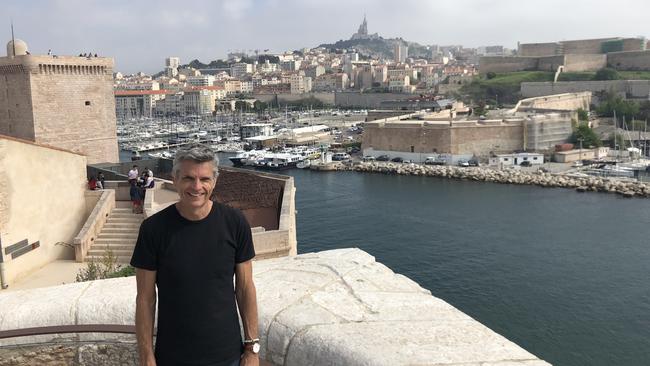
Two years passed.
My job ended, and I went to France. I had a solid grasp of the French language from school and an enduring adherence to private tuition. After leaving journalism five years earlier, I had remained writing in communications roles. Not unusually for my ilk, I gather, the idea of penning a novel sleeps like some evolutionary seed before awakening with geomorphological might, grinding down the sinews of resistance until you eventually cave in and make a start. Beyond a piece of long fiction, I hadn’t a clue what I wanted to write. But in light of my francophilia, I knew where I must do it. I narrowed in on Aix-en-Provence, a university town in southern France that I had visited before.
At my Airbnb, I became friendly with the master of the house. He was a swarthy dance instructor with gleaming teeth and a couple of typical French traits: a lively sense of humour, and an oligarchical view of the world where power is held in the hands of a few, such as big government or commerce, and the rest of us exist merely to feed the beast. The first characteristic counterbalances the rankle of the second, and I think that’s how a lot of French people survive.
His life revolved around his dance studio, and he had a girlfriend who dropped by. He possessed a deep intellectual wisdom which I found attractive, and beneficial. He seemed to understand his life. He seemed at peace enough. But then one day, he surprised me.
I neglected to say that I had made this trip during a torrid European winter. The honeyed light of Provence went out under a blanket of grey. Temperatures rarely pushed past five or six degrees. Snow fell. Siberian winds hammered. On this particular morning, I could hear my host lumbering from room to room, grinding the iron shutters closed. We came together in the loungeroom, where we turned wordlessly to the main window and watched snowflakes flutter across the face of the twin blocks opposite like an organza veil. It brought mystery, even a revelatory beauty, to buildings normally so drab. My host was thinking something else.
“Ces bâtiments sont morts (These buildings are dead). Morts. Dead. Morts.”
I turned to him.
“Pourquoi? (Why?)”
He stared ahead.
“You never see any people, ever. In other places, Berlin, where I lived for a year, Arab countries, kids are out after school and all weekend rah, rah, rah. But here, nothing. France is merdique.” He swung back to me: “Shitty.”
On the top floor of one of the blocks, two men entered the frame of a pair of long windows. They were busy pushing around furniture, dabbing here and there.
“There you go,” I said cheerily. “Activity!”
“Decorators,” my host said flatly. “They’re painting the place for the next cave-dwellers.”
Maybe he had woken in a blue funk, and nothing more. I get it. But from my observations, I think there are plenty of us cave-dwellers living right in the throbbing heart of our cities.
I know this because we tend to find each other. We cross paths when we do venture in the neighbourhood to shop for groceries or queue for coffee or take a run or a walk. Often, we step around blind corners and almost collide. It’s you! Such encounters can happen at the oddest hours, or following some ostensibly spontaneous decision to head out the door. Mostly, in my case at least, these other soloists are women. At certain stages, I did entertain whether the universe was trying to fate me together with somebody. But as I say, there is more than one. And still the connectivity between us feels like another frequency. You can almost hear its noiseless key, lifted up from the familiar beats of the street, reminding us, maybe, that we’re not alone… that we’re never alone.
The streets I speak of are in a gentrified area of Brisbane distinguished by shapely Millennials and apartment bulk. There are bistros and cafes and green spaces where small dogs skip. It’s very friendly and easygoing. I sold up on the Sunshine Coast and came here not long after returning from France, where I stayed three months. My daughter lives in the next suburb, and my son, daughter-in-law and three-year-old grandson are a 25-minute drive across town. I have another daughter in Perth, who I’ve missed terribly due to border restrictions. She’s getting married there in April, by which time I’m hoping the walls have collapsed so I can walk her down the aisle.
I engaged a personal trainer a few months back. I eat simply but well and gave up drinking a year ago. I’m 58, and have never been healthier or fitter. I’m not depressed. I’m happy in my own way. Maybe grateful is a better word.
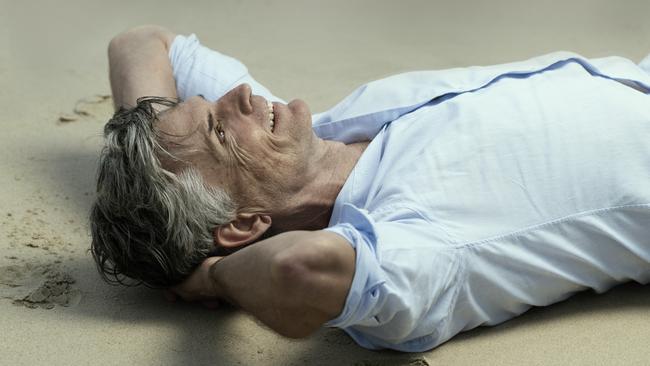
It’s now Wednesday, 5.13am, and the low distant sky is a tangerine halo, diffusing like aspirin on the travails of a city. I think back to that matutinal scene in Aix, when snowfall was the agent of Cinderella effects. Two starkly different pictures, in terms of what’s visible to the eye. And yet I can’t separate them. For it would be like asking, “Do you prefer air to water?”
I don’t know if such heightened moments are best observed alone. But when you’re alone, you don’t so much notice them but fall under the unambiguity of their spell. A bird call that could cut glass. The fluorescence of jacaranda trees. Wind-borne leaves, especially those you experience kinesthetically, that brush your nose, like the kiss of fairies.
A song or sentence from a novel can fill me with sublime joy. Sometimes, I’m just overcome. I feel like the happiest person alive, and I say this, audibly, but to nobody. I love, I guess, alone.
I think I may have tried to break these bonds of introspection. I’ve tried sharing my thoughts. I think so. But you just don’t fire away about such things. There’s no easy entry point. It’s just a bridge too far when you or your company has got only 10 minutes or a nearby jackhammer asserts itself. The last social event I attended brought questions about work and requests to enumerate the meetings I attend or do you sit down or stand up when you talk on the phone? Things like that. I looked for the door but we were in a park and it was a long walk to anywhere. Including my car. And the party was still young. And my inquisitors were lovely people. I just sank a little deeper into my foldable chair.
When I lived by the sea, my hilltop apartment was set back from the coastline with a good-sized deck and lots of glass. From its elevated position, I looked out to an expanse of the blue Pacific. A highlight was the annual migration of humpback whales, which were always heard before seen, announcing themselves with a languorous blow.
I read a lot, and discovered what has become my favourite literary passage. The writer was French absurdist-philosopher Albert Camus, but these words were not drawn from his renowned works. They appeared in a wafer-thin journal, two essays, 20 pages in all, the latter, Summer in Algiers, conjuring sumptuous images of Camus’ Mediterranean youth. But it was the opener, The Sea Close By (La Mer au plus près) that explained to me why not once have I ever lost hope, understanding that hopelessness, or so I’m led to believe, is a tipping point to the irrecoverable.
Those who love and are separated can live in grief, but this is not despair: they know that love exists.
This is why I suffer, dry-eyed, in exile.
I am still waiting.
A day comes, at last…

To join the conversation, please log in. Don't have an account? Register
Join the conversation, you are commenting as Logout